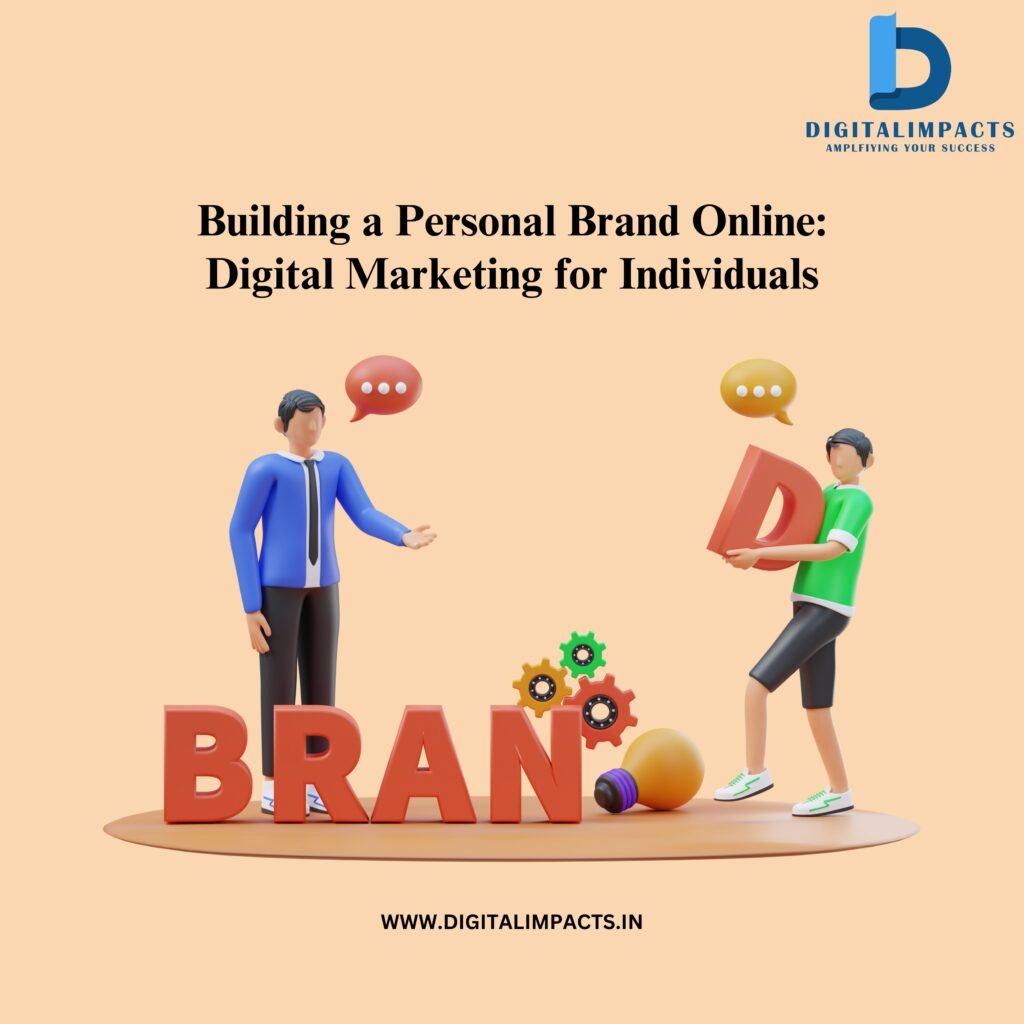
Introduction :
In the age of digital connectivity, individuals have the unprecedented opportunity to craft and amplify their personal brand on a global scale. Building a personal brand online isn’t reserved for celebrities and influencers; it’s a powerful strategy for professionals, entrepreneurs, and anyone seeking to stand out in the digital landscape. This comprehensive guide explores the intricacies of personal brand building through digital marketing, covering strategies, platforms, and the essential elements that contribute to a compelling online presence.
The Foundation of Personal Branding
Defining Your Brand Identity:
Building a personal brand starts with a clear understanding of who you are and what you stand for. Define your values, strengths, and unique attributes that set you apart. Your brand identity should reflect authenticity and resonate with your target audience.
Identifying Your Target Audience:
Understanding your target audience is pivotal. Define the demographics, interests, and pain points of the audience you want to connect with. Tailor your personal brand messaging to address their needs and aspirations.
Crafting a Unique Value Proposition:
What makes you unique? Your value proposition should succinctly communicate the value you bring. It could be your expertise, a distinctive skill set, or a particular perspective that makes you indispensable in your field.
Digital Platforms for Personal Branding
1. LinkedIn: The Professional Hub :
LinkedIn is a powerhouse for professional networking. Optimize your profile with a professional photo, compelling headline, and a detailed summary. Regularly share industry insights, engage with connections, and showcase your expertise through articles or posts.
2. Twitter: Microblogging with Impact :
Twitter’s fast-paced environment allows you to share quick thoughts, engage in conversations, and stay updated on industry trends. Build your brand by sharing valuable content, participating in relevant discussions, and leveraging hashtags to increase visibility.
3. Instagram: Visual Storytelling :
Instagram’s visual-centric platform is perfect for showcasing your personal brand aesthetically. Share behind-the-scenes glimpses, professional achievements, and visually appealing content that aligns with your brand identity.
Content Creation and Distribution
Blogging:
Create a blog to establish yourself as an authority in your niche. Share your expertise, insights, and experiences. Consistent blogging not only adds value but also improves your visibility in search engines.
Video Content:
Video is a compelling medium to connect with your audience. Utilize platforms like YouTube or LinkedIn for video content, including tutorials, vlogs, or thought leadership pieces.
Podcasting:
Podcasting is on the rise, providing a platform for in-depth discussions. Host interviews, share industry insights, and let your authentic voice shine through this auditory medium.
Social Proof and Testimonials
Collecting Testimonials:
Genuine testimonials from colleagues, clients, or collaborators act as social proof. Request and showcase testimonials that highlight your skills, work ethic, and the positive impact you’ve had on others.
Case Studies:
Share success stories and case studies that illustrate your expertise and problem-solving abilities. Real-world examples provide tangible evidence of your skills and reinforce your personal brand.
Networking and Collaboration
Online Networking:
Engage in online networking through platforms like LinkedIn groups or industry-specific forums. Contribute meaningfully to discussions, connect with professionals in your field, and build relationships that can open doors for collaboration.
Collaborative Projects:
Collaborate with others in your industry. Joint projects, webinars, or co-authored content not only expand your reach but also strengthen your personal brand through association with other reputable individuals.
Leveraging SEO for Personal Branding
Optimize your online presence for search engines. Ensure that your website, blog, and social media profiles are easily discoverable. Use keywords relevant to your expertise to enhance visibility in search engine results, making it easier for others to find and connect with you.
Monitoring and Adapting Your Strategy
Analytics and Metrics:
Regularly monitor analytics to gauge the effectiveness of your digital marketing efforts. Track engagement, follower growth, and the performance of different content types. Use these insights to refine your strategy.
Adaptability:
The digital landscape evolves rapidly. Stay informed about emerging trends, algorithm changes, and shifts in user behavior. Being adaptable ensures that your personal brand remains relevant and resonant.
Building a Community Around Your Brand
Engaging with Your Audience:
Respond to comments, messages, and mentions promptly. Foster a sense of community by actively engaging with your audience. Encourage discussions, ask for feedback, and make your audience feel valued.
Webinars and Virtual Events:
Host webinars or virtual events to connect with your audience in real-time. These interactive sessions allow for direct engagement, Q&A sessions, and the opportunity to showcase your expertise.
Conclusion
In the digital age, personal branding is a dynamic process that requires strategic thinking, consistent effort, and a genuine connection with your audience. By leveraging the power of digital marketing across various platforms, individuals can shape their personal brand, establish authority in their niche, and create a lasting impact in their professional journey. Remember, building a personal brand is not just about visibility; it’s about creating a meaningful and authentic connection with the digital world.
